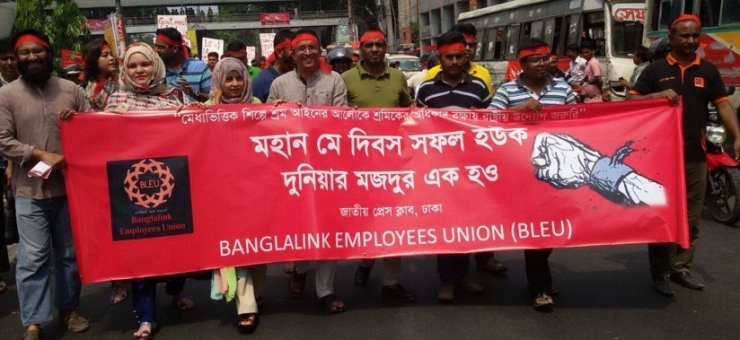News
Bangladesh fails the test

ILO Committee on Standards: Bangladesh criticized for its worker and union record
The ILO Committee on Standards voiced stern criticism of the Bangladesh government for failing to act consistently with ILO standards. Bangladesh was mentioned in a special paragraph which is an indicator of the anger and frustration at the lack of meaningful progress in Bangladesh on workers’ rights.
UNI Global Union General Secretary Philip Jennings drew attention to Bangladesh’s lamentable record on union rights in its telecommunications sector.
Jennings said, “Thousands of workers are employed in the growing telecommunications sector in Bangladesh. It is clear that the government has taken the position that it will not ‘allow’ unions in this ‘white collar’ sector.”
Jennings gave a litany of examples, including workers and unions being fired after their union was recognized, and the Bangladeshi government willfully ignoring a court decision to register a union.
“The largest telecommunications company in Bangladesh has taken the untenable position in court that almost all of its 3,000 employees are ineligible to have a union because they are all supervisors or managers,” Jennings explained.
There is also strong evidence of an anti-union stance backed by the Bangladeshi government at the second largest telecommunications company in the country. At the third largest company in the sector, a union did manage to register despite opposition from the company and collective bargaining began. Instead of using its good offices to solve heated labour relations, the government is seeking to deregister the union.
Jennings said, “It is clear that the government has no intention to respect freedom of association. Enough is enough.”
The UNI General Secretary was not a lone voice: he was joined by, among others the Vice-Chairperson for the Workers Group who had recently returned from an ILO mission to Bangladesh, who made the point that each year the Bangladesh government came to the ILO with a story of unfulfilled ‘good intentions’. He also detailed the lack of workers’ rights in the Export Processing Zones and the failure of the government to sanction employers who bust unions or to ensure that workers who are fired for their union activity are reinstated.
A representative from the employer group, said union registration was often subject to delays and that the government had to address this issue. She said that union registration needed to be transparent and quicker for the benefit of both workers and unions.
The US government representative said that workers must be able to freely join trade unions and criticized procedures for trade union registration in Bangladesh.
Jennings concluded, “Bangladesh has to abide by international standards laid down by the OECD and the ILO. There can be no excuses.”

